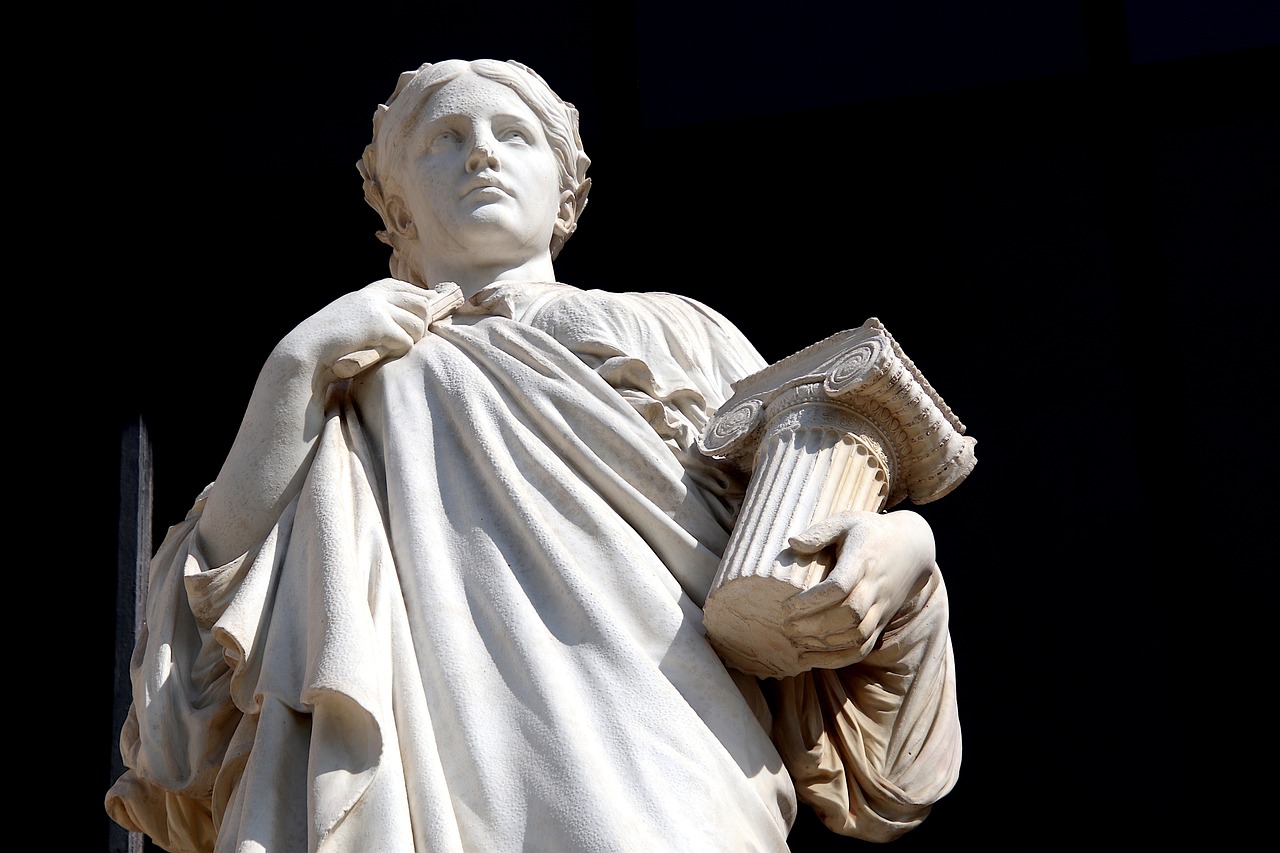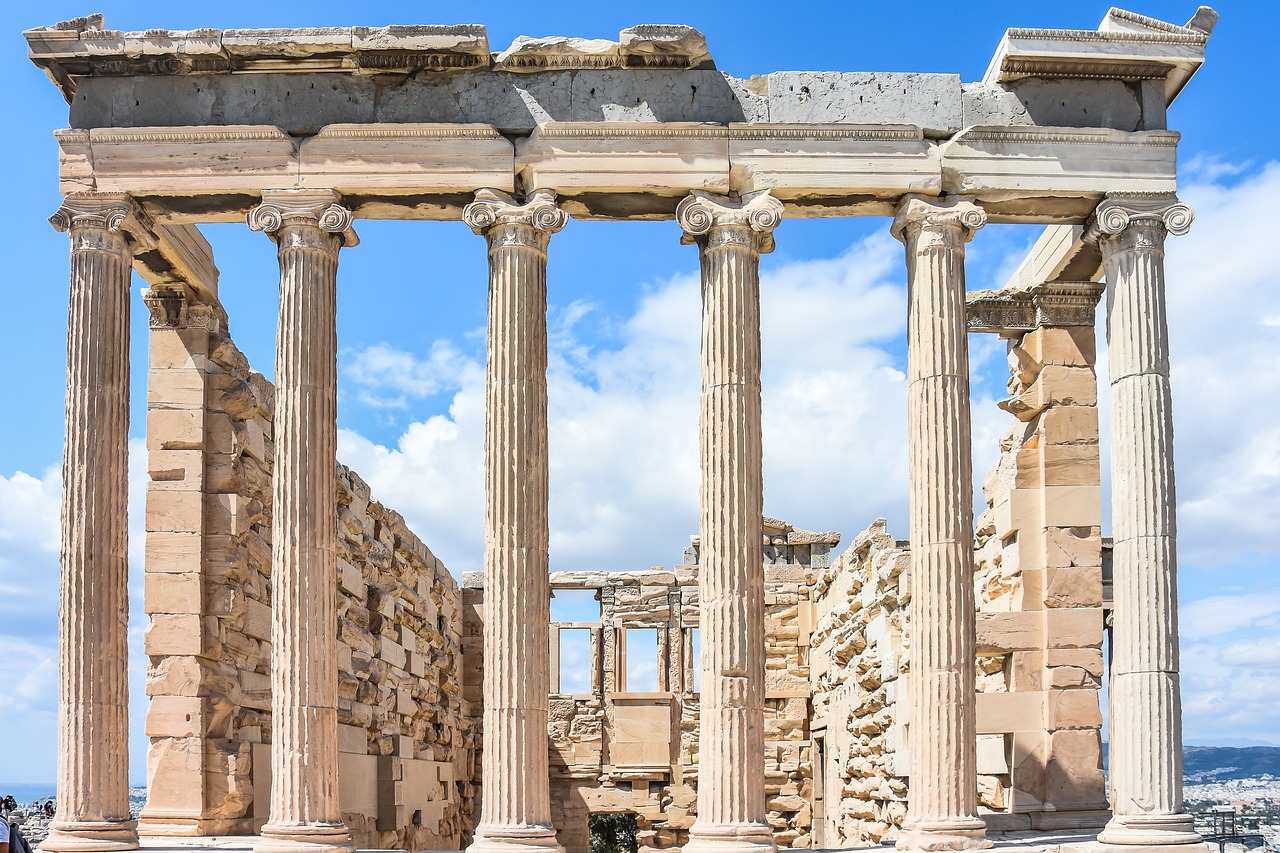The Influence of Ancient Civilizations on Modern Governance
Ancient civilizations such as Greece, Rome, and Mesopotamia have left an indelible mark on modern governance systems, shaping the very foundations of contemporary governments worldwide. These ancient societies laid the groundwork for essential concepts like democracy, republicanism, and legal codes that continue to influence governance structures today.

Development of Democratic Systems
Exploring how ancient societies such as Greece, Rome, and Mesopotamia laid the foundations for modern governance systems, including democracy, republicanism, and legal codes that continue to shape governments around the world today.
The development of democratic systems can be traced back to ancient Athens, where the concept of democracy first emerged. In Athens, **citizen participation** was a fundamental principle, with individuals having the right to vote and participate in decision-making processes. This early form of democracy laid the groundwork for contemporary democratic governments, emphasizing the importance of **rule of law** and **equality** among citizens.
A key aspect of democratic systems is the idea of **representative government**, where elected officials act on behalf of the people. This concept of representation can be seen in modern democracies worldwide, reflecting the influence of ancient Athenian practices on governance structures today.
Ancient democratic systems also focused on **transparency** and **accountability**, ensuring that government actions were open to public scrutiny and that officials were held responsible for their decisions. These principles continue to be essential components of effective democratic governance in the present day.
Furthermore, the **separation of powers** within democratic systems, as advocated by thinkers like Montesquieu, can be traced back to ancient Greek and Roman political philosophies. This division of powers among different branches of government helps prevent the concentration of authority in a single entity, promoting **checks and balances** that safeguard against abuse of power.
In conclusion, the development of democratic systems has been greatly influenced by the democratic ideals and practices of ancient civilizations, particularly Athens. The principles of citizen participation, rule of law, representation, transparency, and separation of powers continue to shape modern governance structures and ensure the functioning of democratic societies.

Legacy of Roman Republic
The Legacy of the Roman Republic holds a significant place in the annals of governance history, leaving an indelible mark on modern political structures. The Roman Republic's enduring influence can be witnessed in various aspects of contemporary governance systems, shaping the very core of how nations are governed today.
One of the key contributions of the Roman Republic lies in the establishment of the concept of separation of powers within the government. This principle, dividing authority among different branches of government, serves as a cornerstone of modern democratic systems. By distributing power among the executive, legislative, and judicial branches, the Roman Republic laid the groundwork for the checks and balances that prevent any single entity from wielding unchecked authority.
Moreover, the idea of checks and balances, another legacy of the Roman Republic, plays a crucial role in ensuring accountability and preventing the abuse of power within governmental structures. This system of mutual oversight and restraint serves as a safeguard against tyranny and corruption, fostering a more transparent and accountable governance framework.
Furthermore, the Roman Republic's emphasis on the rule of law has left an enduring legacy in contemporary legal systems worldwide. The notion that all individuals, regardless of their status, are subject to a set of established laws and regulations is a fundamental principle that underpins modern legal frameworks. By promoting the rule of law, the Roman Republic laid the foundation for fair and impartial justice systems that uphold the rights and liberties of citizens.
In addition to these fundamental principles, the Roman Republic's legacy is also evident in the concept of civic duty and participation in governance. The idea that citizens have a responsibility to actively engage in the political process, contribute to the well-being of society, and hold their leaders accountable traces its roots back to the Roman Republic. This ethos of civic engagement continues to shape modern democracies, emphasizing the importance of an informed and involved citizenry in maintaining a healthy democratic society.
In conclusion, the Legacy of the Roman Republic reverberates through the corridors of power in contemporary governance systems, underscoring the enduring relevance of ancient principles in shaping the structures and practices of modern governments.

Contributions of Mesopotamian Empires
When exploring the , it becomes evident that these ancient civilizations played a pivotal role in shaping early forms of governance that continue to influence modern societies. Mesopotamia, known as the "cradle of civilization," was home to several empires, including the Sumerians, Akkadians, Babylonians, and Assyrians, each leaving a lasting impact on governance structures.
One of the key contributions of Mesopotamian empires was the establishment of centralized authority. These early civilizations developed hierarchical systems of governance with kings or rulers at the top, overseeing various administrative officials responsible for managing different aspects of society. This organizational structure laid the groundwork for future governmental systems based on centralized power.
Furthermore, Mesopotamian empires were pioneers in creating written legal codes, such as the famous Code of Hammurabi. These early laws provided a framework for justice and governance by outlining specific rules and penalties for various offenses. The codification of laws in Mesopotamia set a precedent for legal systems in later civilizations, emphasizing the importance of written laws in maintaining social order.
Another significant contribution of Mesopotamian empires was the development of administrative systems to manage complex societies. These civilizations implemented bureaucratic structures to oversee taxation, trade, and public works projects, demonstrating an early understanding of the need for organized governance to ensure the functioning of society.
Moreover, Mesopotamian empires made advancements in irrigation and agricultural practices, allowing for the growth of prosperous urban centers. The construction of canals and irrigation systems enabled efficient farming techniques, leading to surplus food production and the rise of thriving cities with specialized labor forces.
In addition to their contributions to governance and infrastructure, Mesopotamian empires also made strides in mathematics, astronomy, and literature, laying the foundation for future intellectual pursuits. The development of cuneiform writing, the invention of the wheel, and the study of celestial bodies all reflected the advanced knowledge and innovation of these ancient civilizations.
Overall, the to governance, law, administration, and cultural achievements have had a lasting impact on modern society. By studying the legacy of these ancient civilizations, we gain valuable insights into the origins of governance systems and the evolution of human civilization.

Philosophical Foundations of Governance
Philosophical Foundations of Governance delve into the fundamental ideas that ancient philosophers like Plato, Aristotle, and Confucius contributed to the understanding of governance and statecraft. These thinkers contemplated the nature of justice, the ideal state, and the role of individuals within a society. Plato, in his work "The Republic," envisioned a just society governed by philosopher-kings who possess wisdom and virtue, prioritizing the common good over self-interest. Aristotle, on the other hand, emphasized the importance of the rule of law, advocating for a balanced constitution that incorporates elements of democracy, aristocracy, and monarchy to prevent tyranny. Confucius, a Chinese philosopher, focused on ethical governance, stressing the significance of benevolence, righteousness, and propriety in leadership to maintain social harmony and stability.

Legal Systems and Codification
Legal systems and codification have played a crucial role in shaping governance structures throughout history. Ancient civilizations like Mesopotamia and Rome laid the groundwork for codified laws that continue to influence modern legal systems. The development of legal codes, such as the famous Code of Hammurabi in Mesopotamia and the Twelve Tables in Rome, marked significant milestones in the history of law.
These early legal systems aimed to provide a framework for justice and order in society, establishing clear rules and consequences for various offenses. The Code of Hammurabi, for example, contained detailed laws covering a wide range of issues, from property rights to criminal behavior. Similarly, the Twelve Tables of Rome codified laws related to property, family, and civil rights, ensuring equal treatment under the law for all citizens.
By codifying laws, ancient civilizations sought to promote fairness, consistency, and predictability in legal proceedings. These early legal codes laid the foundation for the development of more sophisticated legal systems in later centuries, influencing the structure and content of modern legal codes and statutes.

Role of Religion and Ethics
Religion and ethics have played a pivotal role in shaping governance throughout history, with ancient civilizations providing a foundation for the integration of these principles into modern systems. The intertwining of religious beliefs and ethical values has influenced the development of laws, moral codes, and societal norms that continue to guide governance practices today. In ancient societies, religion often served as a unifying force, providing a moral compass for rulers and citizens alike. The ethical teachings of religious leaders and philosophers laid the groundwork for concepts of justice, fairness, and compassion that are essential in governance.
Moreover, the role of religion in governance extended beyond moral guidance to encompass the legitimization of political authority. Rulers in ancient civilizations often claimed divine mandate, linking their leadership to the will of the gods and reinforcing their power through religious rituals and ceremonies. This fusion of religious and political authority helped maintain social order and stability, as well as providing a sense of purpose and meaning for the populace.
Ethical principles, derived from religious teachings and philosophical reflections, have also influenced the development of legal systems and ethical frameworks in governance. Concepts such as the golden rule, the sanctity of life, and the importance of honesty and integrity have been embedded in legal codes and institutional practices to uphold justice and promote the common good. The ethical dimensions of governance serve as a moral compass, guiding decision-making processes and shaping policies that reflect values of accountability, transparency, and respect for human dignity.
Furthermore, the intersection of religion and ethics in governance has fostered a sense of community and shared values among diverse populations. By emphasizing common ethical principles and moral responsibilities, ancient civilizations promoted social cohesion and solidarity, fostering a sense of belonging and mutual respect among citizens. This sense of collective identity and shared purpose continues to be relevant in contemporary governance, where inclusivity, diversity, and respect for individual rights are essential for fostering a harmonious and just society.

Urban Planning and Infrastructure
Urban planning and infrastructure in ancient civilizations played a crucial role in shaping the development of cities and governance structures. The meticulous design of cities like Rome, Athens, and Babylon reflected not only the practical needs of the population but also the values and priorities of the ruling authorities. The construction of aqueducts, roads, and public buildings showcased the advanced engineering skills and organizational capabilities of these societies.
One remarkable example of ancient urban planning is the city of Rome, where a sophisticated network of roads connected the vast empire and facilitated trade, communication, and military movements. The Roman aqueducts, engineering marvels of their time, provided clean water to urban centers, improving public health and sanitation. These infrastructure projects not only enhanced the quality of life for citizens but also demonstrated the power and efficiency of Roman governance.
Ancient cities like Mohenjo-Daro in the Indus Valley Civilization exhibited remarkable urban planning with carefully laid out streets, drainage systems, and public baths. The grid layout of the city and the advanced sewage system reflected a high level of organization and foresight in managing urban spaces and resources. Similarly, the city of Alexandria in Egypt, founded by Alexander the Great, became a center of learning and culture with its grand library and lighthouse, highlighting the importance of infrastructure in fostering intellectual and economic growth.
The legacy of ancient urban planning and infrastructure is evident in modern city design and governance practices. Concepts such as zoning regulations, public transportation systems, and green spaces can be traced back to the principles established by early civilizations. By studying the successes and failures of ancient urban planning, contemporary city planners can learn valuable lessons in creating sustainable, inclusive, and resilient urban environments that meet the needs of diverse populations.

Lessons for Contemporary Governance
When we reflect on the governance practices of ancient civilizations, we uncover invaluable lessons that can guide contemporary governance in navigating complex challenges. The leadership models of the past offer insights into effective decision-making, fostering accountability, and promoting transparency in modern government structures. By studying the historical evolution of governance, we can adapt proven strategies to enhance civic engagement and ensure the equitable distribution of power.
One crucial lesson from ancient civilizations is the significance of institutional design in maintaining a functional and responsive government. The intricate systems of checks and balances implemented by societies like Rome emphasize the importance of preventing the concentration of power in the hands of a few. By incorporating similar mechanisms into contemporary governance frameworks, we can safeguard against abuses of authority and promote the interests of the broader population.
Moreover, the concept of justice and fairness embedded in the legal codes of ancient empires serves as a cornerstone for shaping modern legal systems. Drawing inspiration from historical precedents such as the Code of Hammurabi, contemporary societies can strive to uphold ethical standards, protect individual rights, and ensure equality before the law. By embracing these fundamental principles, governments can foster trust among citizens and uphold the rule of law.
Another vital lesson for contemporary governance lies in the promotion of civic engagement and participatory decision-making. Ancient societies like Athens exemplified the power of citizen involvement in shaping public policies and holding leaders accountable. By encouraging active participation in governance processes, modern governments can enhance transparency, responsiveness, and inclusivity, ultimately strengthening the social contract between rulers and the ruled.
Furthermore, the experiences of ancient civilizations underscore the importance of effective leadership in times of crisis and uncertainty. By studying the responses of historical figures to challenges such as wars, natural disasters, and social upheavals, contemporary leaders can glean valuable insights on crisis management, resilience, and the need for adaptive governance structures. Learning from the past can equip governments with the tools to navigate turbulent times and lead their societies towards stability and prosperity.
Frequently Asked Questions
- 1. What is the significance of ancient civilizations in modern governance?
Ancient civilizations like Greece, Rome, and Mesopotamia played a crucial role in shaping modern governance systems. They introduced fundamental concepts such as democracy, republicanism, legal codes, and urban planning that continue to influence governments worldwide.
- 2. How did ancient Athens contribute to the development of democratic systems?
Ancient Athens is known as the birthplace of democracy, where principles of citizen participation, rule of law, and direct democracy were first established. These ideas have had a lasting impact on contemporary democratic governments.
- 3. What was the legacy of the Roman Republic on modern governance structures?
The Roman Republic's legacy includes the establishment of the separation of powers, checks and balances, and the rule of law, which are foundational principles in many modern governance systems, particularly in democratic societies.
- 4. How did Mesopotamian civilizations contribute to early forms of governance?
Mesopotamian civilizations introduced centralized authority, administrative systems, and written legal codes, laying the groundwork for governance structures that influenced future societies and legal systems.
- 5. What role did philosophical ideas from ancient thinkers play in governance?
Philosophers like Plato, Aristotle, and Confucius offered insights into governance, ethics, and the state's role in promoting justice and stability. Their ideas continue to shape modern governance practices.
- 6. How did ancient legal systems influence modern legal codes?
Ancient legal systems, such as the Code of Hammurabi and Twelve Tables, contributed to the codification of laws in modern legal systems, establishing principles of justice and legal accountability.
- 7. In what ways do religious beliefs and ethics impact modern governance?
Religious beliefs and ethical principles from ancient civilizations continue to influence modern governance practices by shaping concepts of justice, morality, and social order within societies.
- 8. What lessons can be learned from ancient urban planning and infrastructure projects?
Ancient civilizations' urban planning and infrastructure projects, including aqueducts, roads, and public buildings, have influenced modern city design and governance by emphasizing the importance of organized and functional urban spaces.
- 9. How can the governance practices of ancient civilizations address contemporary challenges?
By drawing lessons from ancient governance practices, contemporary societies can address current challenges related to leadership, civic engagement, institutional design, and the distribution of power within society.



















